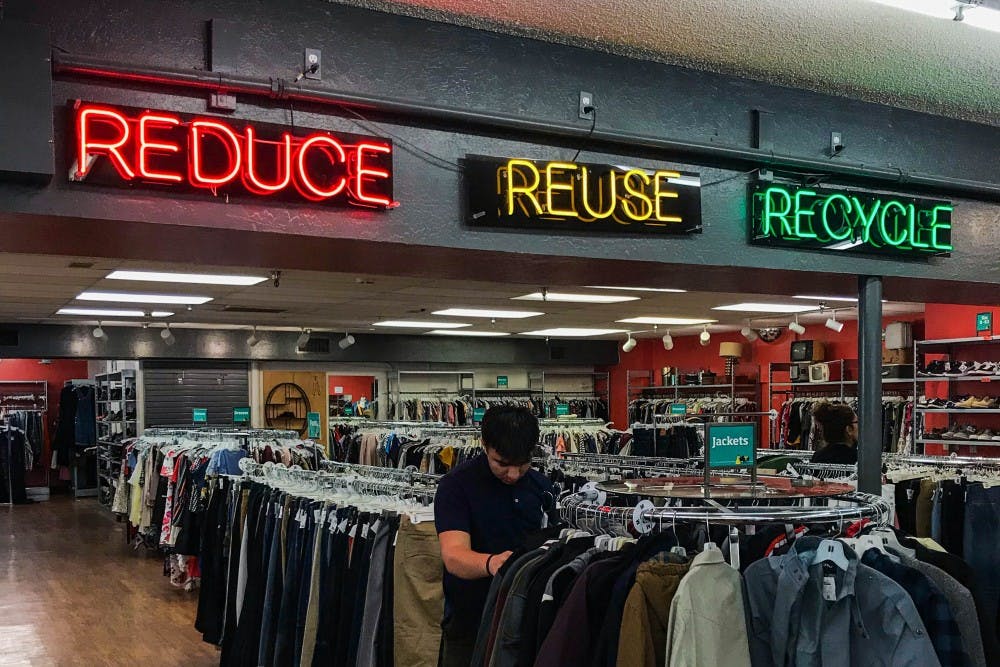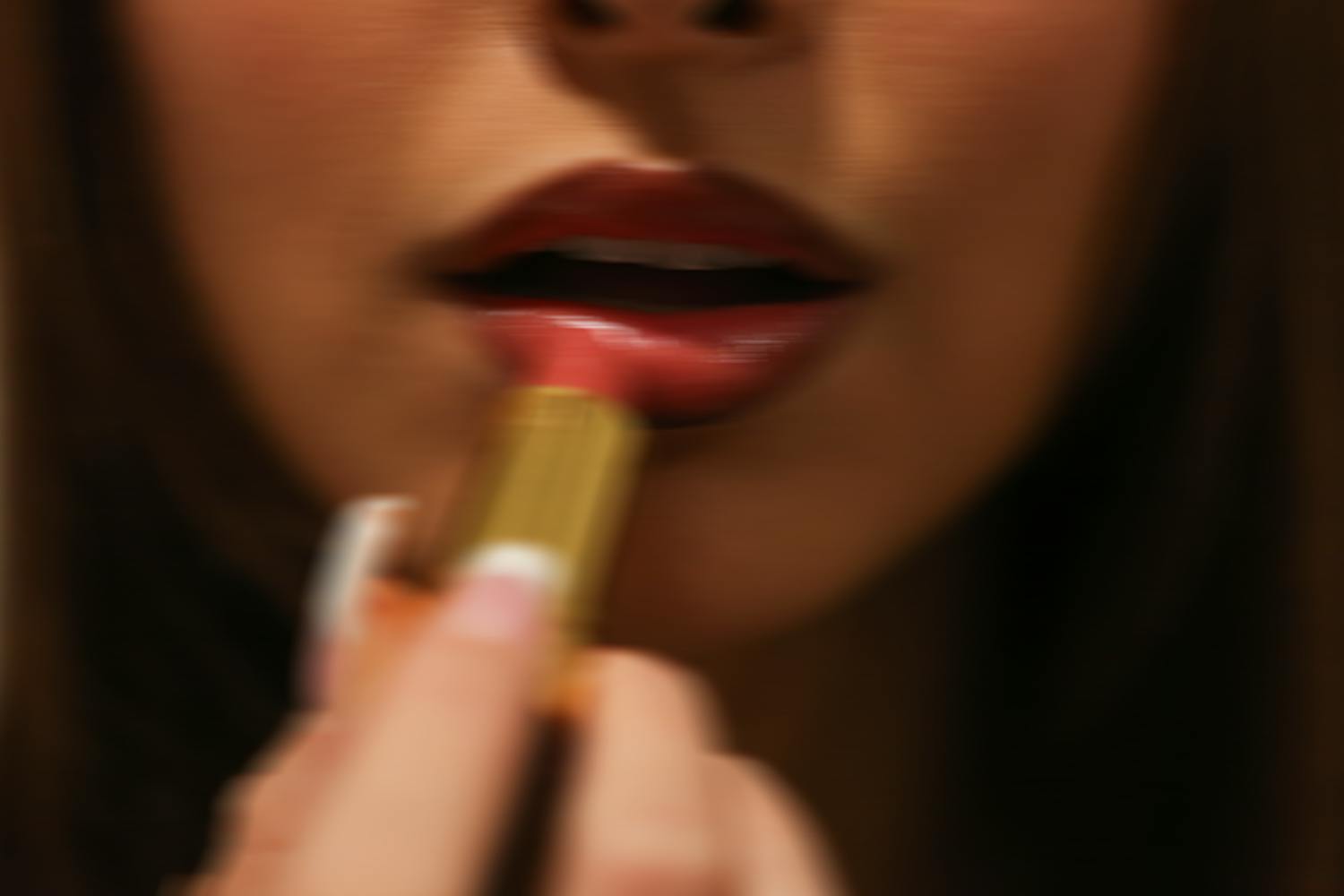Haunted by the ghosts of costumes worn only once, students will pass through the aisles of costumes that feed into a wasteful cycle. This happens every year as people buy single-use costumes created to fuel the fast fashion industry and be thrown away on Nov. 1.
In an effort to combat the clothing crisis, local thrift stores have been promoting recycling and buying used costumes.
Buffalo Exchange is one example of a store promoting conservation efforts by posting do-it-yourself Halloween costumes on its Instagram to popularize second-hand shopping in the name of spooky season.
Anna Bettis, a senior program coordinator at the School of Sustainability, said students should look to thrift shopping as it gives the fabric “new life."
“A lot of the clothes that we donate, if people don’t buy them, they’re still shipped to other countries and have negative impacts,” Bettis said. “You can give life to clothing that has already expended carbon.”
Bettis said that most people do not associate Halloween with the harm created by regular fast fashion, a phenomenon rooted in American consumption models.
“I think a lot of American holidays do promote consumerism so I think that we think it’s a tradition,” she said. “We think of the warm nostalgia but we don’t think of what’s left over.”
Lourdes Loera, a freshman majoring in environmental chemistry and a member of the Barrett Sustainability Club, said students should view Halloween in the same light they view other sustainability efforts.
“When we think of fast fashion we usually think of stores like H&M,” Loera said. “It’s important to remind ourselves that our waste does go somewhere, and it’s not just gone once the holiday is over.”
Madeline Dolgin, an enrollment advisor for ASU online, is finding her own way to ring in the season by repurposing halloween costumes.
Dolgin said she views thrifted Halloween costumes as more creative than those purchased from mass produced Halloween stores like Spirit, but the excitement of the holiday can distract from the impact of purchasing cheap costumes.
“I think somebody is more likely to be more considerate about what brands they're going to buy from if it's just their regular clothes than if it's a costume because they don't necessarily care about the quality at this moment," she said. "And it's just one day, and it's a lot of fun."
Dolgin started her own efforts to combat fast fashion by repurposing old clothes for a brand she created called Healing Seams.
“(Jeans are) one of the worst products to produce for the environment," Dolgin said. "They're just very water intensive as a lot of them have dyes that are really harmful, polluting rivers.”
Dolgin said she began toying with the idea of creating Healing Seams just this year and launched the project in September.
Since then, she said she has noticed how people are eager to get involved in sustainability efforts when presented with the idea.
“Even though I really want (people) to be angry about how this industry really sucks, I think it's just something everyone kind of knows about and just brushes under the rug," she said. "When somebody presents them with an opportunity of how they can be better, they take me up on it."
Dolgin said that generally, second-hand costumes are more authentic and encourage creativity, while also being better for the environment.
"Why not use it as an opportunity to be more creative? I think you'll actually impress your friends," she said.
Reach the reporter at ivcrespo@asu.edu or follow @ziacrespo on Twitter.
Like The State Press on Facebook and follow @statepress on Twitter.




